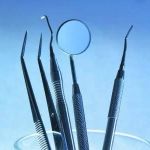- Understanding Oral Care and Its Importance
- Essential Daily Oral Care Habits
- Common Oral Health Issues and How to Prevent Them
- Advanced Oral Care Solutions
- Choosing the Right Oral Care Products
Understanding Oral Care and Its Importance
Oral care goes beyond just brushing your teeth—it involves taking care of your overall mouth health, including your teeth, gums, tongue, and mouth tissues. A comprehensive oral care routine can prevent numerous dental issues, including cavities, gum disease, and bad breath. It is essential to maintain good oral hygiene to ensure that your smile remains bright and your mouth stays healthy throughout your life.
By practicing consistent oral care, you not only improve your appearance but also contribute to your overall health. Studies show a direct connection between oral health and systemic health, including cardiovascular disease, diabetes, and even respiratory infections.
Essential Daily Oral Care Habits
A good oral care routine is the cornerstone of maintaining a healthy smile. Here are the essential habits you should incorporate into your daily routine:
1. Brushing Your Teeth Properly
Brushing your teeth at least twice a day is the most basic and essential part of oral care. It helps remove food particles and plaque from the teeth, reducing the risk of cavities and gum disease. Be sure to brush for at least two minutes using a fluoride toothpaste. Don't forget to replace your toothbrush every three months to ensure its effectiveness.
2. Flossing Daily
Flossing removes food particles and plaque between your teeth where a toothbrush can't reach. Daily flossing is vital to prevent plaque buildup, which can lead to gum disease and cavities.
3. Using Mouthwash
Mouthwash is an excellent addition to your oral care routine, as it helps kill bacteria and freshen breath. Look for an antimicrobial mouthwash that can help reduce plaque and fight gum disease.
Common Oral Health Issues and How to Prevent Them
Even with good oral hygiene, there are several common dental issues you may face. Here are some of the most frequent oral health problems and how to prevent them:
1. Tooth Decay
Tooth decay, also known as cavities, occurs when bacteria in the mouth feed on sugars and produce acids that erode tooth enamel. To prevent decay, avoid sugary foods, and brush regularly with fluoride toothpaste to strengthen enamel.
2. Gum Disease
Gum disease starts with inflammation and bleeding of the gums, progressing to more severe issues like gum recession and tooth loss. Preventing gum disease involves brushing and flossing properly, using mouthwash, and visiting your dentist regularly.
3. Bad Breath
Bad breath, or halitosis, is often caused by poor oral hygiene, dry mouth, or bacterial buildup. Regular brushing, flossing, and using mouthwash can help reduce bad breath and maintain fresh breath throughout the day.
Advanced Oral Care Solutions
While basic oral care habits are essential, some individuals may need advanced solutions to address specific oral health concerns:
1. Professional Cleanings
Even with excellent daily oral care, professional cleanings are necessary to remove tartar buildup that brushing and flossing cannot eliminate. Visiting your dentist every six months ensures your teeth and gums stay healthy.
2. Teeth Whitening
If you're looking to brighten your smile, professional teeth whitening treatments can provide fast and effective results. There are also over-the-counter whitening products available, but it's essential to choose those that won't harm your enamel.
3. Dental Sealants
Dental sealants are a protective coating applied to the chewing surfaces of your back teeth. These sealants can prevent cavities by protecting the enamel from decay-causing bacteria and plaque.
Choosing the Right Oral Care Products
When it comes to selecting oral care products, it’s essential to choose those that are right for your specific needs. Here's what to look for:
1. Toothpaste
Choose a toothpaste with fluoride to help strengthen your enamel and protect against cavities. There are also options for sensitive teeth, tartar control, and whitening.
2. Toothbrush
Electric toothbrushes are often more effective at removing plaque than manual brushes. However, if you prefer a manual brush, choose one with soft bristles to avoid damaging your gums and enamel.
3. Floss
There are different types of dental floss available, including waxed, unwaxed, and floss picks. Choose the one that is easiest for you to use and that fits well between your teeth.
Maintaining comprehensive oral care is essential for not only having a beautiful smile but also for preserving your overall health. By following these tips, you can prevent many common dental issues and enjoy a lifetime of healthy teeth and gums. For more personalized recommendations and products to improve your oral care, visit Dentistry Toothtruth for expert advice and premium oral care products.







 Edmond Dental Center: Michael Chandler, DDS5.0 (404 review)
Edmond Dental Center: Michael Chandler, DDS5.0 (404 review) Ramsey Dental Center4.0 (242 review)
Ramsey Dental Center4.0 (242 review) Chris Wong DDS4.0 (305 review)
Chris Wong DDS4.0 (305 review) Smile Academy Pediatric Dentistry4.0 (48 review)
Smile Academy Pediatric Dentistry4.0 (48 review) Glendale Holistic Dentistry - Los Angeles Dentists Group4.0 (19 review)
Glendale Holistic Dentistry - Los Angeles Dentists Group4.0 (19 review) Willamette Dental Group - Puyallup4.0 (117 review)
Willamette Dental Group - Puyallup4.0 (117 review) The Importance of Oral Health Education During Pregnancy for a Healthy Pregnancy
The Importance of Oral Health Education During Pregnancy for a Healthy Pregnancy Best Tips for Brushing Your Teeth Properly for Healthy Gums: Essential Techniques for Oral Health
Best Tips for Brushing Your Teeth Properly for Healthy Gums: Essential Techniques for Oral Health Why Skipping Dental Checkups Can Lead to Bigger Oral Health Problems
Why Skipping Dental Checkups Can Lead to Bigger Oral Health Problems Advantages of Porcelain Dental Restorations
Advantages of Porcelain Dental Restorations How Can Diabetes Cause Tooth and Gum Problems? Preventing and Managing Oral Health Issues
How Can Diabetes Cause Tooth and Gum Problems? Preventing and Managing Oral Health Issues Healthy Habits for Promoting Good Oral Health and Hygiene: Tips for a Healthy Smile
Healthy Habits for Promoting Good Oral Health and Hygiene: Tips for a Healthy Smile